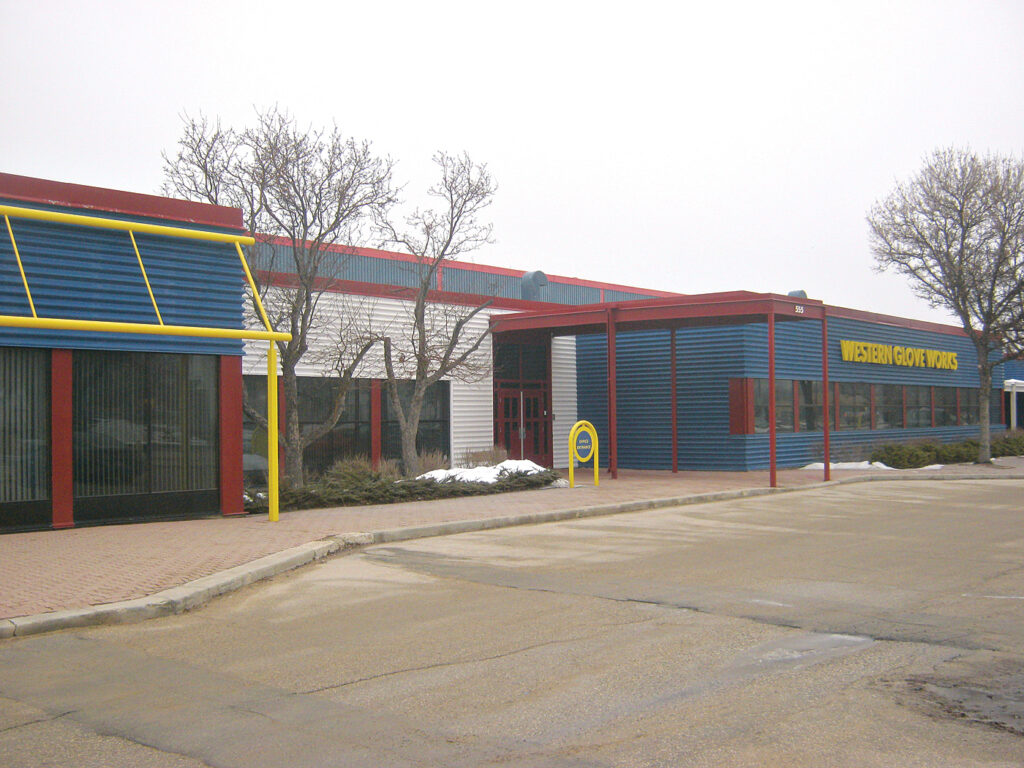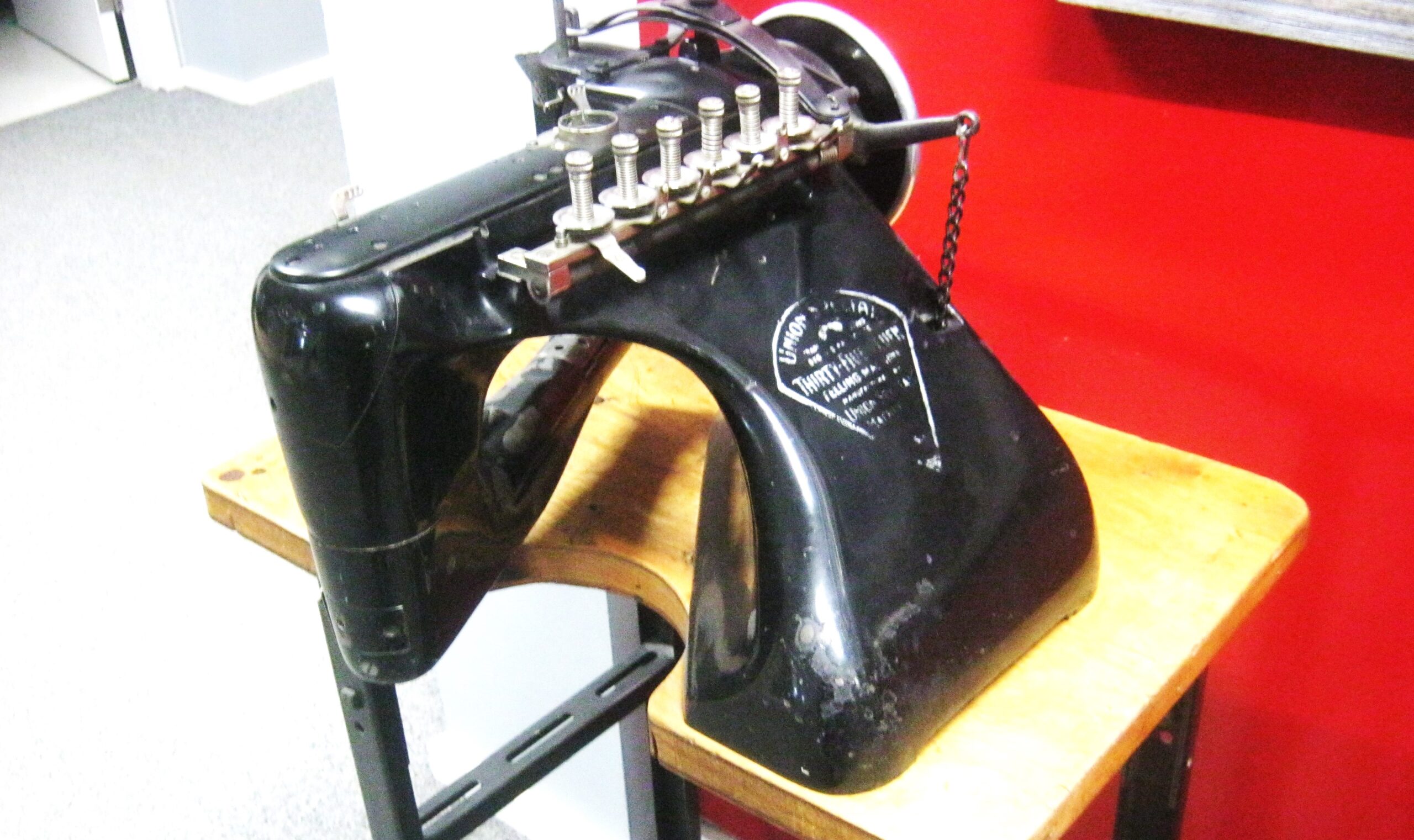
Celebrating 150 years of Winnipeg
One of the wonderful things about the people of Winnipeg,” observes Bob Silver, the longtime president of Western Glove Works, “is that there is a modesty about us along with a collective determination to succeed. As my friend, Sandy Riley, pointed out, after Winnipeg lost its reputation as the Chicago of the North, this community continued to persist because of the collective will of the people who choose to live here.”
And, for more than 100 years, the Silver Family and Western Glove Works have played a prominent role in our community’s success.
In the fall of 2022, the company hosted an evening at the Metropolitan Centre to celebrate GWG’s 100th birthday. Silver reports that 50 to 60 company executives attended from all the company’s branches throughout North America. “We had some speeches, some pictures, good food and entertainment,” he says. “Mostly, it was an opportunity for our associates in all of our offices to get together.”
Silver notes that it was his grandfather, Sol Silver, who founded the company, in 1921, in partnership with brothers-in-law, (S.B. and A.J. uncles) Nitikman. “My grandfather had a relative who operated a general store in Winkler,” Silver recounts. “At that time, Winnipeg was known as a wholesale city – supplying western Canadians with goods manufactured in eastern Canada. Shipping was expensive. My grandfather was one of the first to discern the benefit of manufacturing products in Winnipeg.”
The family opened Western Glove Works in the Exchange district at the corner of McDermott and Adelaide. The initial product line was gloves. “In a winter climate such as ours, gloves were important for people who worked outside,” Silver points out. “Within a few years, our company added overcoats and work wear and, later, casual wear.”
Silver observes that from the beginning, the garment industry in Winnipeg was dominated by Jewish businessmen, perhaps because Jewish immigrants were barred from certain other fields and professions in those years. Bob Silver’s father, Ed, for example joined the family business in the mid-1940s out of university.
“My dad would have liked to become a doctor,” he recalls, “but, at that time, there was a strict quota limiting the number of Jewish students (as well as other descendants of east Europeans) in medical school.”
Bob Silver himself was happily living in an agricultural co-op on the West Coast, in 1973, when his father died suddenly at the age of 50. “Initially, I had no interest in going into the business,” he recalls. “I agreed though to help my great uncle (S.B. Nitikman) find a buyer for the company. I soon realized that, even if we sold the company, I would have to stay on a for a while to help with the transition. I quickly developed a passion for the business.”
So Bob Silver, his brother, Michael, their longtime friend, Norman, and his cousin, Ron Stern, formed a partnership and bought the business.
(Ron Stern and Bob Silver also later acquired the Winnipeg Free Press which they still own.)
“When I came on board, WGW had long ago phased out gloves,” Silver says. “We were producing leisure suits and double-knit slacks. Jeans were a small part of the business. At that time, the baby boomers were coming of age. All of us – and our contemporaries – were wearing jeans. That was the direction we decided to go.”
In the early 1990s, Michael Stern created an all-new division called Silver Jeans specializing in jeans.
During his 50 years in the industry – and even before – there have been major changes. In the early years, he points out, all the workers were men – most from eastern Europe and many of them Jewish immigrants. By the 1960s, the men had been largely replaced by women – mostly eastern European immigrants.
It was the garment industry, he notes, under the leadership of the manufacturers’ Manitoba Fashion Institute, which took the lead in the late 1960s in recruiting Filipino workers.

In 1987, WGW moved into its new manufacturing plant at the southern foot of the Salter Bridge. WGW’s ownership showed their progressive vision by including a daycare on the premises – the first of its kind – for the children of their employees. At the time, GWG numbered over 1,000 employees.
In the 1990s, though, everything began to change for Canada’s garment industry. “The writing was on the wall,” Silver notes.
And, partly as a result of the industry’s central training and lobbying body in the province, in 1989 the Free Trade Agreement (FTA) between Canada and the United States came into effect.
“During the period between 1989 and 1995, our business grew eightfold,” he notes.
The 1995 World Trade Organization (WTO) agreement to boost manufacturing from some 40 low-cost countries, in part by eliminating the WTO quotas in outerwear, caused devastation to the outerwear manufacturing industry in Canada. The result was that GWG joined most other Canadian manufacturers in moving their operations to low-income countries overseas.
Today, Western Glove Works has a workforce of just 100 remaining in Winnipeg. “Our financial and administrative functions we still do here,” Silver says. “We also handle our Canadian distribution out of Winnipeg. In the United States, we have a design office in Los Angeles, a sales office in New York and we do our distribution to our American accounts out of Washington state.”
The Silver Brothers and Ron Stern (Norman Stern has passed away) still own the company but, Bob points out, day-to-day management is now in the hands of younger family members.
Looking back on his 50 years running the family business, Bob Silver says that there is no place other than Winnipeg where he would choose to be. “The generosity among people here is unmatched anywhere else in Canada,” he notes. “Winnipeggers contribute more per capita than anywhere else.
“And I am proud of what WGW has been able to contribute this community for more than 100 years and will continue to contribute for more years to come.”


